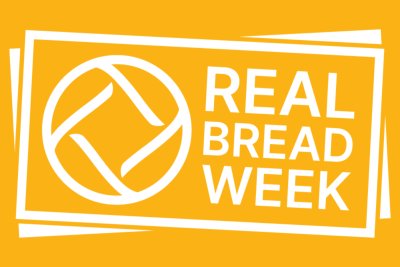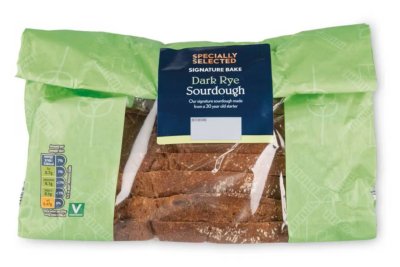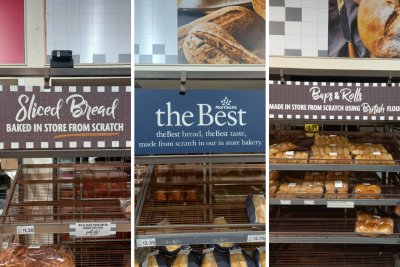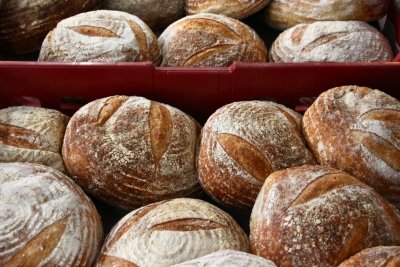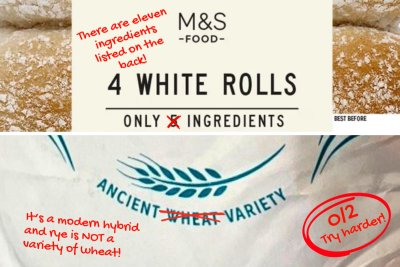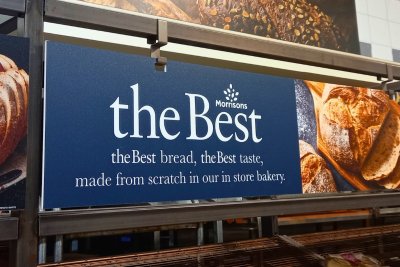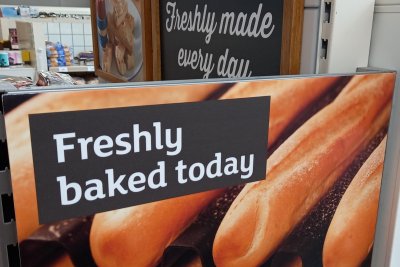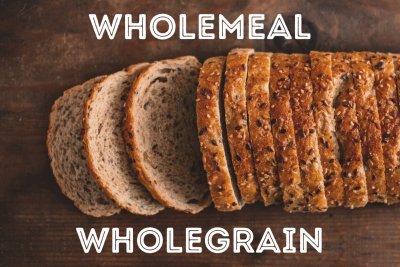 Supporting healthy eating choices. Credit: www.realbreadcampaign.org CC-BY-SA-4.0
Supporting healthy eating choices. Credit: www.realbreadcampaign.org CC-BY-SA-4.0
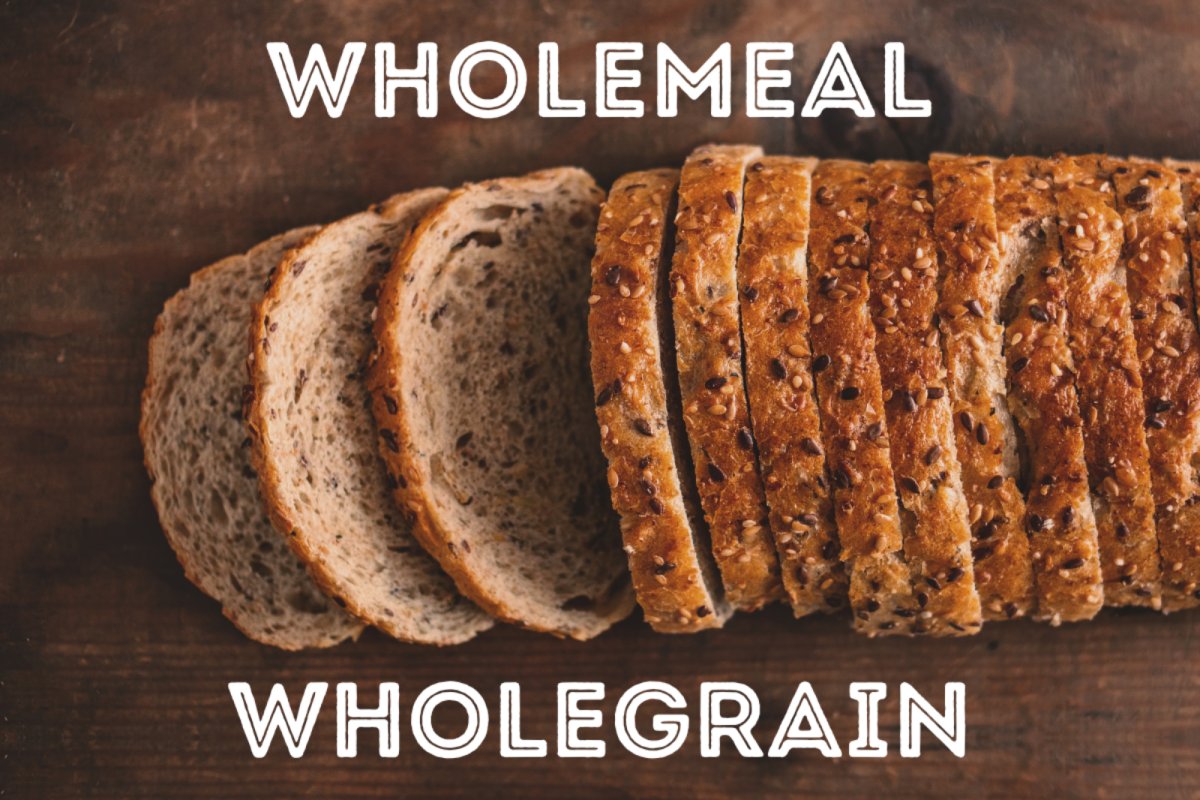
Wholegrain and wholemeal: a decade demanding definition
Ten years after its A Wholegrain of Truth? report, the Real Bread Campaign writes to Defra yet again.
On 7 February 2023, Real Bread Campaign co-ordinator Chris Young replied to the most recent response from the Food Compositional Standards Team at Defra.
Thank you for your quick reply to my most recent email. It’s good to know that Defra is still reviewing the issue we have highlighted regarding regulation and current use of the word wholemeal.
We have long maintained our assertion that the words wholegrain and wholemeal need legal definitions. These should be distinct from each other, as should be the criteria for how each of the words can and cannot be used in the naming and marketing of baked products.
This honesty and transparency is for a range of reasons, not least helping to ensure that people are not misled, and helping enable them to make better-informed healthy eating choices. Leaving wholegrain undefined and unregulated is not an option as it will perpetuate confusion and the potential for shoppers to be misled, as we first highlighted a decade ago in our A Wholegrain of Truth? report.
In short, our proposal is the word wholegrain should guarantee that more than half of a product’s dry ingredients are whole (or broken down) unrefined grains, and the word wholemeal should guarantee that all of the flour in a product is 100% extraction rate – ie unrefined.
Another option to reduce potential for confusion would be to define and regulate just one of these two words and prohibit the use of the other altogether (as happened to the word wheatmeal in 1984) but we believe that keeping two, distinct terms would be beneficial.
We propose that:
- The word wholemeal is defined as whole grains (including, but not limited to, cereals), de-hulled (where necessary), cleaned and milled into 100% extraction rate flour or meal, with all of the constituent parts present in their original proportions.
- The word wholemeal can only be used in the name or marketing of a product if all of the flour or meal is wholemeal.
- The use of refined (ie less than 100% extraction rate) products of cereals, other grains, seeds, nuts, legumes, tubers etc. (including, but not limited to, starches, non-cereal flours and powdered gluten) is not permitted in any product named or marketed using the word wholemeal.
- The word wholemeal can be used in the name or marketing of a product with added unrefined grains (whole or flaked, kibbled etc.) provided that the product meets the above requirements.
- If all of the flour or meal is ‘common’ wheat (Triticum aestivum), then the word wholemeal does not require qualification. Otherwise, it must be accompanied by the common name of the grain. For example: wholemeal rye bread, wholemeal spelt flour.*
- The word wholegrain (or whole grain) is defined as whole grains (including, but not limited to, cereals) that are de-hulled (where necessary) and cleaned; and whole grains that are broken (flakes, kibble etc.) but not refined.
- The word wholegrain can only be used in the name or marketing of a product if at least 51% by weight of the dry ingredients are wholegrain and/or wholemeal, both as defined above.
- When the word wholegrain is used to name or market a product, it must be accompanied by the quantitative ingredients declaration (QUID) percentage for the unrefined grain / grain product(s), which must also appear on front of pack labelling. (This is in addition to the general ingredients list QUID requirement.)
- *This requirement applies to all bread / baked products, but included here for avoidance of doubt.
I accept that the suggestion I made on 26 September 2022 could have resulted in less clarity than the above.
This would support official encouragement of people eating more wholegrain, higher fibre foods. A manufacturer would be able to continue making and marketing a ‘half and half’ product by simply not using the word wholemeal or wholegrain – an approach already taken by at least two large manufacturers. Alternatively, they could increase the wholegrain ingredient content of a product by 1% or more in order to use the word in naming/marketing it. This would be of benefit of people eating the product, and also make a small contribution to reducing the enormous amounts of food waste generated by refined flour production in terms of the bran etc. that is diverted away from our plates.
We still do not agree with the contention that the current review of legislation relating to bread and flour is not the ideal opportunity to bring about greater clarity around the use of both wholemeal and wholegrain. As we’ve said before, this could then fit into (and even provide a template for) their definition and regulation for use with other food (eg breakfast cereals, snacks, fishfingers etc.) that the healthy halo of wholegrain is used to promote.
As you insist that definition and regulation of the word wholegrain belongs elsewhere, though, we again ask you to please tell us what the relevant legislation is and when we, and all other stakeholders, will be consulted on this.
In the same vein, the public consultation that ran from September to November 2022 focussed almost exclusively on the addition of folic acid to flour. We therefore ask yet again when and through what means will the Real Bread Campaign and all other stakeholders get to have our say on the review of regulations relating to the rest of our Honest Crust Act proposals? When will the public consultation(s) be on those other five points?
Regards,
Chris Young
Real Bread Campaign coordinator
17 January 2024: Defra confirmed it would adopt the Real Bread Campaign's proposed legal defintion of wholemeal: ‘To maintain consumer protection so that consumers can be assured wholemeal flour is authentic, we will be introducing a legal description that means wholemeal flour must consist of the whole product from the milling and grinding of cleaned cereal.’
Defra continues to refuse to adopt a legal definition of the word wholegrain, or regulate its use.
4 April 2023: Replying to our email of 22 March, a policy advisor in Defra’s Food Compositional Standards Team wrote: "I’m sorry that your disappointed, we have not dismissed arguments out of hand and we will look to explore suitable courses of action for areas which fall outside the scope of the Bread and Flour Regulations when there is an opportunity to do so. For the time being other competing prioritise are taking precedence. In terms of points raised around 50/50 products we will be engaging further with trading standards. It should be noted that we can’t provide authoritative statements of law as our view may differ from trading standards or the courts."
See also
Real Bread Campaign: Finding and sharing ways to make bread better for us, our communities and planet.
Sustain
The Green House
244-254 Cambridge Heath Road
London E2 9DA
020 3559 6777
sustain@sustainweb.org
Sustain advocates food and agriculture policies and practices that enhance the health and welfare of people and animals, improve the working and living environment, promote equity and enrich society and culture.
© Sustain 2026
Registered charity (no. 1018643)
Data privacy & cookies
Icons by Icons8
